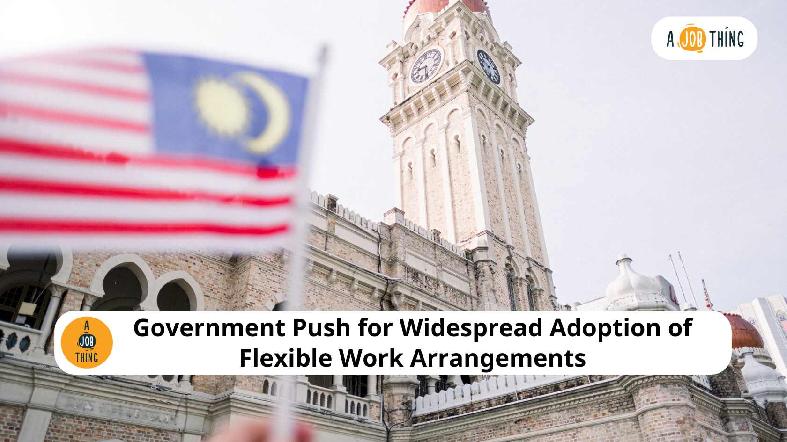
Government Push for Widespread Adoption of FWAs
Are You Hiring?
Find candidates in 72 Hours with 5+ million talents in Maukerja Malaysia & Ricebowl using Job Ads.
Hire NowFlexible work arrangements, or Aturan Kerja Fleksibel (AKF), allow employees to adjust their work schedules, working days, or even locations.
Instead of sticking to fixed hours, employees and employers can agree on arrangements like flexible start and end times, working fewer days with longer hours, or working from home.
These arrangements are based on updates to the Employment Act 1955, which allow employees to request FWAs formally.
The goal is to help businesses adapt to changing needs while supporting employees' work-life balance.
Overview of Malaysian Labor Laws That Impact FWAs
Malaysia’s Employment Act 1955 and Industrial Relations Act provide rules for introducing FWAs. These laws give both employers and employees clear steps to follow.
Under Sections 60P and 60Q of the Employment Act, employees are allowed to formally request flexible work arrangements in writing. The law requires employers to:
-
Review the request within 60 days.
-
Approve or reject the application with valid reasons provided in writing if rejected.
Additionally, employers must respect limits on working hours:
-
Employees cannot work more than 45 hours per week.
-
No employee should work more than 5 consecutive hours without a minimum 30-minute break.
The Industrial Relations Act supports FWAs by encouraging mutual consent between employers and employees.
Any changes to work conditions, such as flexible hours or remote work, must be agreed upon and documented to avoid disputes.
Latest Updates and Government Policies on FWAs in Malaysia
New Regulations or Updates on FWAs
In December 2024, the Malaysian government launched updated guidelines on FWAs to encourage their adoption nationwide. These updates align with the amendments made to the Employment Act 1955 in 2022.
The key changes include:
-
Employers must provide valid reasons for rejecting an employee’s FWA request.
-
Employers can revoke an approved FWA if it disrupts business operations or productivity, provided they give prior notice.
Flexible Work Policy by the Government
The Flexible Work Policy introduced by MOHR aims to promote work-life balance and support economic growth. It highlights:
-
Remote work encouragement: Employers are encouraged to adopt hybrid models where employees can split their time between office and home.
-
Economic Inclusion: The government has emphasized FWAs as a way to boost participation in the workforce, particularly for parents, caregivers, and people with disabilities.
Guidelines Under the Ministry of Human Resources (MOHR) on FWAs
The Ministry of Human Resources (MOHR) has issued detailed guidelines to help employers introduce FWAs smoothly.
These guidelines, also called Aturan Kerja Fleksibel (AKF), cover the following:
Employee Requests for FWAs
Employees can apply for flexibility in:
-
Working hours.
-
Number of working days.
-
Location of work (e.g., remote or hybrid work).
Employers should reply to these requests within 60 days.
Types of FWAs
Common FWA options include:
-
Flexible hours: Employees set their work hours while fulfilling the required weekly or daily hours.
-
Flexible days: Employees work fewer days by extending daily working hours.
-
Remote work: Employees work from home or other locations, reducing the need for commuting.
Suitability for FWA Implementation
Not all roles are suitable for FWAs. Jobs that require physical presence, like factory work or security services, may not be compatible with flexibility.
Employers must assess job requirements before approving requests.
Compliance With Employment Law: Employer Responsibilities
To comply with Malaysia’s labor laws, employers must:
-
Get mutual agreement from employees for any new work arrangements.
-
Protect employee rights, such as rest days, annual leave, and overtime pay.
-
Maintain clear documentation of any agreed flexible arrangements, such as updated employment contracts or collective agreements.
Employers are also prohibited from:
-
Reducing employee benefits without mutual agreement.
-
Increase higher workloads on employees working under FWAs compared to regular employees.
These updates give clear guidelines for flexible work arrangements, making it easier for both employers and employees.
By following these rules, employers can support flexibility, keep productivity high, and follow the law.
Over time, this can help businesses by building employee loyalty, lowering turnover, and creating a happier workplace.
Are you hiring in 2025?
Start your hiring journey with Ajobthing today! Post your job ads, connect with top talents, and streamline your recruitment process with our easy-to-use platform.
Read More:
- EPF Belanjawanku: What It Is and How It Supports Employee Financial Health
- New EPF Retirement Savings: Helping Employers Support Financial Well-Being for Employees
- Can we retain staff over the age of 60 in Malaysia?
- Malaysian Employment Act 1955: Key Provisions Every Employer Must Know
- Malaysia National Registration Identity Card (NRIC): A Guide for Employers
- What is the TIN Number in Malaysia?
- Long Weekend 2025 List in Malaysia
- Public Holidays in Malaysia for 2025: Complete List and Dates

